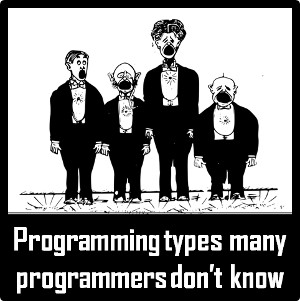New Year, New Cloud? The Rise of Mobile Hybrids
Published on 17 January 14
0
0
2013 was a big year for the cloud, with enterprise and midsize companies across the nation taking some (or all) of their data out of local stacks to leverage the power of public infrastructure. Others chose to create on-premise, private clouds capable enough to handle any DevOps workload and agile enough to react under any circumstance. Hybrid clouds saw the greatest gains over the year, with businesses looking for ways to merge the cost of public deployments and security of private options. Predictions put this hybrid market at the forefront of cloud expansion but as a recent article from the Institute of Electrical and Electronics Engineers (IEEE) points out, 2014 may mark the beginning of a new trend: The mobile cloud.
More Than a Smartphone
It's no surprise that mobile devices are coming to dominate the marketplace. Apple made huge inroads with consumer technology and has now managed to deploy a number of effective business applications, while Google has been developing a smartphone and tablet user base that-as of this year-will dominate both iOS and Windows-based mobile shipments. Front-line employees expect they'll be permitted to use smartphones or tablets on the job, while managers and C-suite executives are learning the value of mobile-friendly enterprise resource planning (ERP) or analytics tools. The problem? That smartphones and tablets are inherently constrained by size and therefore suffer with reduced computing speed, smaller storage and limited battery life. In other words, these devices are perfect candidates for the expandable resources of cloud infrastructure.
Consider the recent rise in cloud-enabled gaming with systems like the PlayStation 4 and Xbox One. Both Microsoft and Sony are taking advantage of cloud technology to deliver improved gameplay experiences; Microsoft, for example, leverages the cloud to record the driving habits of gamers behind the wheel of sports cars in Forza Mortorsport. The resulting "drivatars" are used to populate other single-player games, providing users with a realistic driving experience built on the actions of players rather than computer algorithms. Processing this much data in each Xbox would slow the machine to a crawl-instead, data is sent to Microsoft's cloud servers for analysis and action. And this is just the beginning. Companies like graphics chip maker Nvidia are starting to talk about cloud-side graphics processing, eliminating the need for expensive hardware inside user desktops or game consoles. Rather than spending money on owned technology, businesses and individuals could access powerful, dedicated services for a fraction of the capital cost.
Re-thinking Mobile
This is the ultimate goal with mobile. Instead of depending on the physical processor of a phone to handle data analysis or the internal storage to manage big data, mobile-cloud hybrids connect devices with reliable cloud services to provide resources on demand. Instead of tablet and phone manufacturers attempting to balance device weight, power and battery life in a never-ending tug-of-war there's potential for phones to slim down, tablets to lighten up and contain only the basic infrastructure necessary to establish solid Internet connections.
Finding Balance
The potential shift in mobile means a similar shift for IT professionals, one already in early stages thanks to hybrid PC cloud computing. While managing local resources remains a critical IT task-and it's unlikely companies will give up trust all critical data to the cloud-the role of IT increasingly focuses on network reliability, not hardware maintenance. Instead of multiple failure points like aging hard drives, corrupted file systems and struggling CPUs, companies face the challenge of uptime. Reliable connection to cloud providers becomes mission-critical when mobile devices are more than just email-senders and stat-checkers but rather adaptable platforms for leading-edge analytics and customer management services. In fact, research company IDC believes cloud-enabled devices may eventually represent a third platform, separate from traditional desktop environments.
Companies should expect the new mobile cloud market to be just as disruptive as its private and public predecessors, and also expect a wide variance in cloud uptime, service availability and features. Most in-house IT professionals are already on the road to mobile acceptance through the use of robust bring-your-own-device (BYOD) policies and controls, but it's also worth reaching out to a cloud strategy provider which has both deep knowledge of current trends and can offer solid advice on how much cloud a company really needs.
Mobile and the cloud have both become familiar, ubiquitous technologies; a marriage between the two only makes sense to leverage the best aspects of both, since hardware no longer defines devices but acts as a gateway to substantial resources. In 2014, expect to see a shift away from mobile as convenience to mobile as a cloud foundation.
David Eisner is the President & CEO of Dataprise Cloud Services, an IT Services company based in Maryland. Visit Dataprise's site today to learn more about available services.
This blog is listed under
Cloud Computing
and Mobility
Community
Related Posts:
Post a Comment
You may also be interested in
Share your perspective

Share your achievement or new finding or bring a new tech idea to life. Your IT community is waiting!

 David
David






